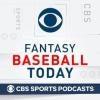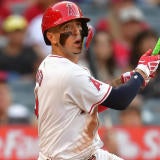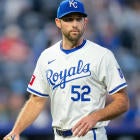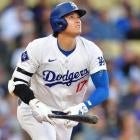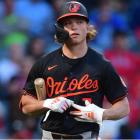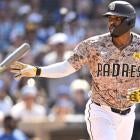
All right, guys. Truth time.
No doubt, the extent to which a 60-game season should change our evaluation of individual players is being exaggerated, with calls for redrafts and the like. The player pool has not been turned completely upside-down. In fact, the first mock drafts for our new reality, including this Head-to-Head points one, look almost identical to the ones we were having in March.
At least for the first half or so. Beyond that, the impact is more evident.
I think it's even truer for a points format like this one than a categories format, be it Rotisserie or Head-to-Head, because points leagues emphasize volume. A player has to accumulate numbers to make an impact. Ratios are worth nothing in and of themselves. And when a season is only 60 games long, every missed opportunity for numbers will resonate all the more.
There were small glimpses of this hyperfocus on volume even in the early rounds of our mock draft. About six rounds in, I asked the participants if they had yet to make a pick that they wouldn't have made for a 162-game season and got two responses, both in deference to volume.
Alex Fast of Pitcher List said he scooped up J.T. Realmuto in Round 5 specifically for the shortened season, believing him to be a catcher who could legitimately play every day with the smaller workload and the availability of the DH. Meanwhile, Michael Waterloo of The Athletic set out to grab pitchers already accustomed to heavy workloads, like Trevor Bauer, believing they could be built up faster. After all, it's likely most pitchers will be limited to 3-4 innings in their first couple turns through the rotation following an abbreviated spring trading. GM Alex Anthopoulos has already confirmed as much for the Braves.
And pitcher workload seemed to be a point of emphasis for everybody. In the past, you might have been inclined to target upside plays like Josh James and Dylan Bundy in the middle and late rounds, hoping to catch lightning in a bottle with the understanding you could pivot to something safer if they didn't work out. But now, there won't be enough time to pivot, and the innings may not be there for those risky pitchers even if they do pan out. For us, it led to renewed interest in pitchers like Dallas Keuchel, Jose Quintana, Cole Hamels and Brad Keller. I got in on the act, too, nabbing Jon Gray in Round 17 and Miles Mikolas in Round 18. It felt yucky.
Meanwhile, closers went earlier than we're used to seeing in this format because the relief pitcher-eligible starting pitcher no longer seems like as adequate of a substitute. Most of them aren't fully tested in the starting role, and so it might take a few turns for them to build up to the five innings necessary for a win or the six innings necessary for a quality start. During that time, a closer would obviously be more productive.
Those are my initial observations. Now, for some introductions:
1) Scott White, CBS Sports (@CBSScottWhite)
2) Joey Mellows, Baseball Brit (@BaseballBrit)
3) Connor Rooney, FantasyPros (@c_rooney_)
4) Michael Waterloo, The Athletic (@MichaelWaterloo)
5) Adam Aizer, CBS Sports (@AdamAizer)
6) Nicholas Mimikos, Stack Attack podcast (@NMimi)
7) B_Don, Razzball (@RazzBDon)
8) Frank Stampfl, CBS Sports (@Roto_Frank)
9) Alex Fast, Pitcher List (@AlexFast8)
10) Phil Ponebshek, Patton & Company
11) Garrett Atkins, Fake Teams (@13atkins13)
12) Nathan Judah, Express & Star (@NathanJudah)





